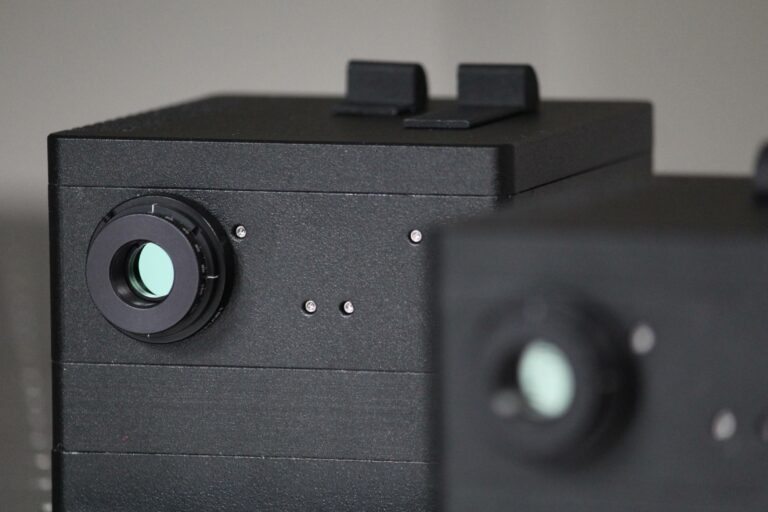Solutions/Laser Drivers
Low noise
All our current generators have been designed for state-of-the-art scientific purposes. The patented design ensures ultra low current noise and guarantees that its floor is maintained even with the application of external modulations.
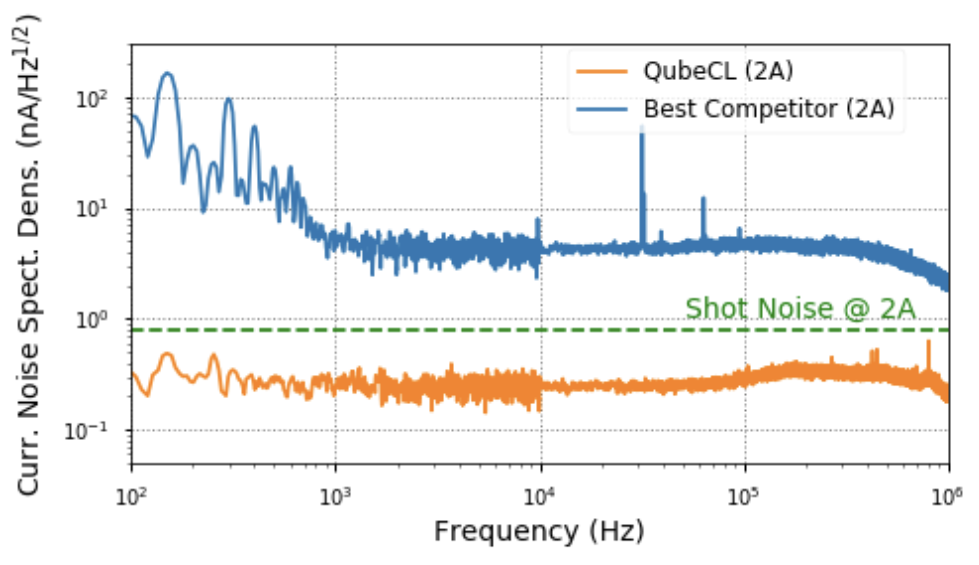
The modular architecture solves the problem of sourcing large output currents while maintaining a noise level always below 1 nA/sqrt(Hz). In general, the current-noise of commercial drivers linearly increases with the maximum output current. This is not the case of our drivers. In fact, its noise increases roughly with the square-root of the maximum current, always ensuring a sub-shot-noise operation.
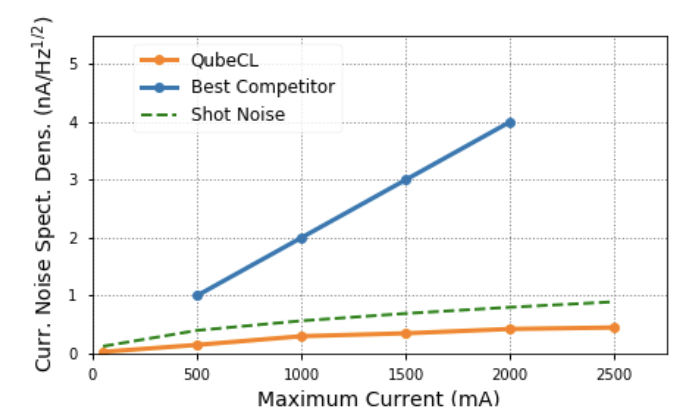
Compact and versatile
The fully modular, configurable and engineered design provides the versatility and the compactness of a custom solution while keeping the ready-to-use typical of a benchtop instrument.
Up to 32 different configurations can be obtained by combining 8 modules, covering multiple different needs:

You can embed your butterfly-packaged or HHL-packaged laser into your driver. All the signals will be internally routed to the laser: no cables around, a full control in a 10 cm x10 cm footprint. Compatible both with fiber-coupled and free-space lasers. In the latter case you can have the beam always at the right height by using the adjustable periscope accessory. For higher-power lasers a water-cooled option is also available.

With overvoltage protection capabilities, it ensures a safe operation of the laser, and allows setting the laser polarity and grounding. Moreover, 2 independent external modulation signals can be efficiently coupled to the laser. As an option, an internal digital signal generator (DDS) can be added on both modulation channels.

For any frequency/phase stabilization need, you can choose among Phase Lock Loop (PLL), Pound-Drever-Hall (PDH) and Lock-In Amplifier (LIA) modules. Seamlessly lock your laser to an external source, cavity or molecular reference. Here are some examples of lock applications with QCLs; the same scheme can be applied with other laser diodes and QubeDLs.

Choose between different current ratings, and combine them for larger current output, while always keeping the noise at the lowest level.

For current-driven TEC stages the temperature controller module ensures <1 mK operation in any condition.
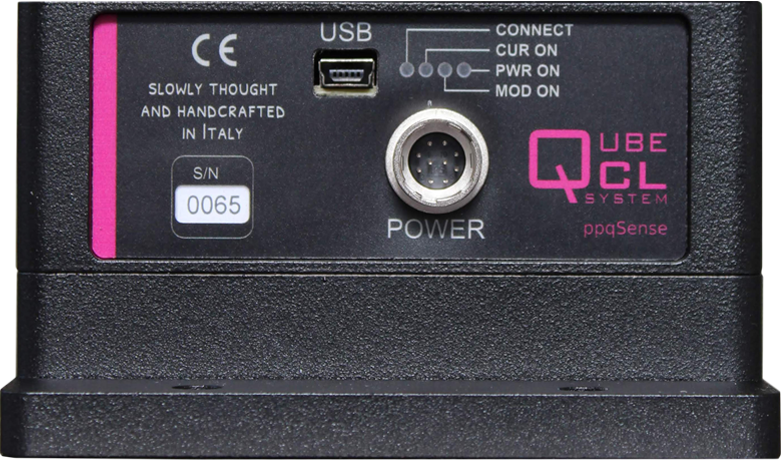
It is not only a base: it is the cooling unit of the instrument and it allows you to screw it firmly at place. Compatible with the standard pitch of optical tables.
Ready to use
Our systems are designed to be a plug-and-play solution for your laser experiment. You will only have to connect your laser and focus on your application.
This is what you will find in our laser driver box:
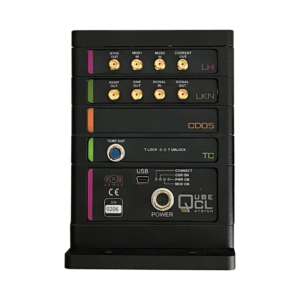
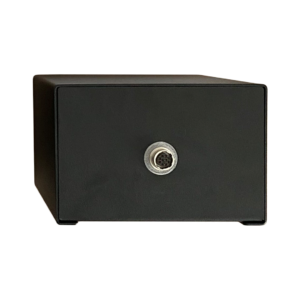
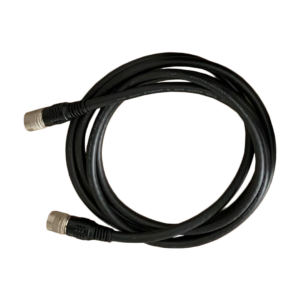
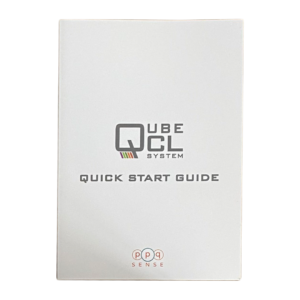
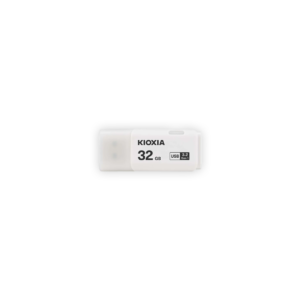
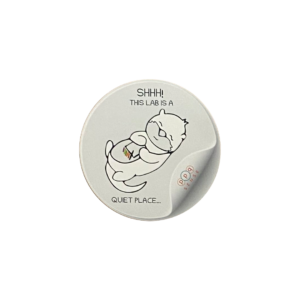
QubeDT
A new desing for high-sensitivity, low noise detection of mid-infrared light. Coupled with our ultra-low noise laser controllers, The QubeDT differential detector opens a wide range of possibilities for advanced spectroscopy.
Two models are available:
- QubeDT-S: DC-coupled (0-2 MHz BW) detector, designed for spectroscopic applications such as Polarization Spectroscopy.
- QubeDT-F: AC-coupled, high BW (>100MHz) detector, designed for hetherodyne detection and RIN-immune beat-note acquisition.
Laser Drivers
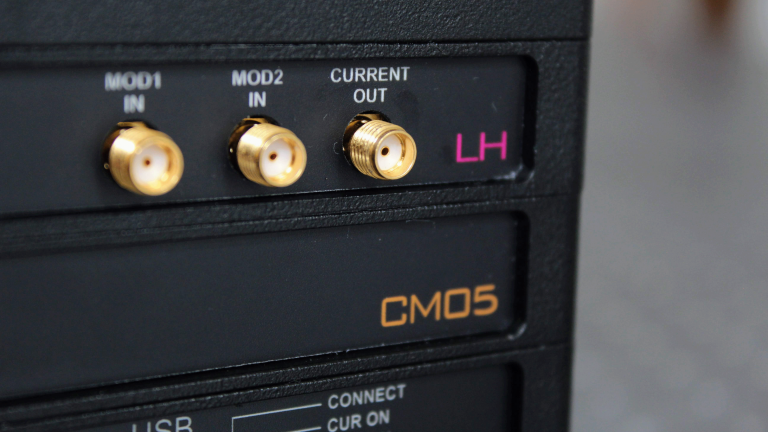
QUBE CL

QUBE DL

QUBE DT

